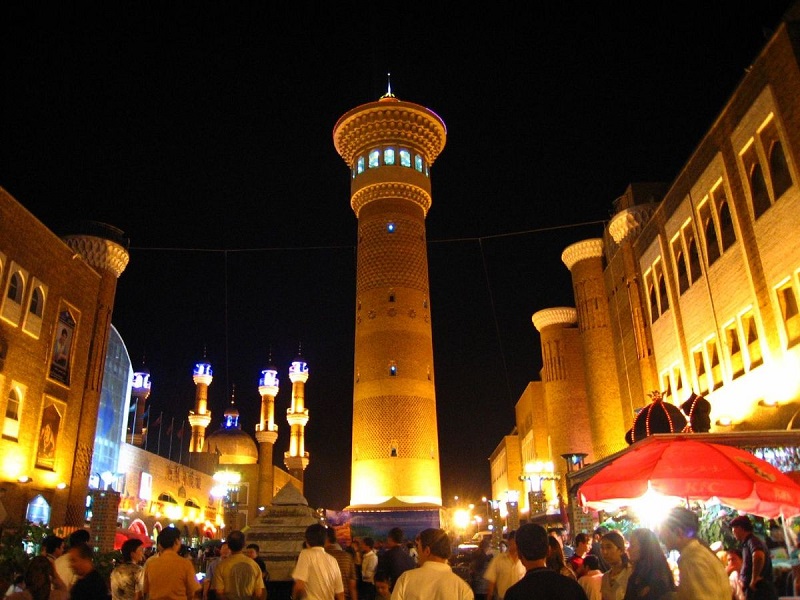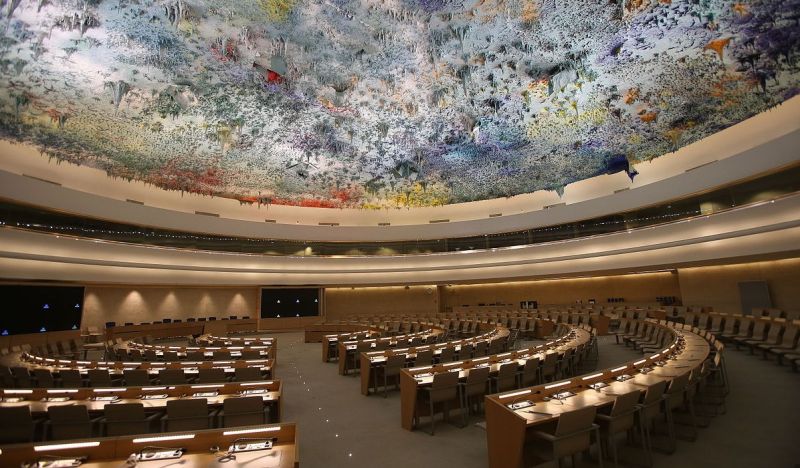By Rustem Shir, Research Associate with the Uyghur Human Rights Project
Of the 7,111 languages being spoken around the world, 41 per cent can be classified as endangered, meaning that face-to-face use by speakers across generations is in decline.
At first glance, it may seem inaccurate to designate the Uighur language as endangered – more than 11 million people speak Uighur as a first language and Uighur is an official language of the Xinjiang Uighur Autonomous Region (also known as East Turkestan) in China.

Yet, despite these indicators of vitality, the Uighur language is in peril because it has been targeted by the Chinese Communist Party for erasure.
In education, Mandarin has displaced Uighur as a language of instruction. In commerce, bookstores have curtailed the sale of Uighur language publications. On street signs and university emblems, the Uighur script has been removed. And in private domains, Uighurs are pressured to use Mandarin to demonstrate their loyalty to the Chinese government.
The imposed norm of Mandarin for communication also extends to state-run “homes,” such as internment camps, where nearly three-million Turkic Muslims are reportedly imprisoned, and orphanages, where the children of internment camp detainees languish.
These actions constitute an assault by the Chinese Communist Party on Uighur communities, to interrupt the continuity of the Uighur language, and to replace it with Mandarin.
International Uighur Language Day, observed annually on June 15, provides an opportunity to hold the Chinese government accountable for their unjust ambition to take the Uighur language, a central aspect of Uighur cultural heritage, out of circulation.
The Chinese Communist Party’s motivations for erasing the Uighur language are not complex. Xinjiang is important to the Chinese government because of its natural resources and position at the crossroads of Eurasia. This region also plays a pivotal role in the Belt and Road Initiative, President Xi Jinping’s immense infrastructure, foreign policy, and economic project, which involves Chinese investments of roughly US$150 billion a year across 68 countries.

To the Chinese Communist Party, the Uighur language is an impediment to national unity because it distinguishes Uighurs from the Han Chinese majority. The elites of Beijing have a paranoid fear that Uighurs may exploit such cultural differences to justify a desire to separate from China, thus undermining China’s geopolitical plan to develop trade and exercise political influence on the affairs of other nations.
Though cultural assimilation is widely celebrated as a development strategy, this ubiquity does not provide a licence for the Chinese government to avoid disgrace as an architect of ethnocide.
Ethnocide is defined by UNESCO in the Declaration of San José as “an ethnic group is denied the right to enjoy, develop and transmit its own culture and its own language, whether collectively or individually. This involves an extreme form of massive violation of human rights and, in particular, the right of ethnic groups to respect for their cultural identity.”
It would be difficult to find a more precise description of life as a Uighur under Chinese Communist Party rule.
In its systematic attempt at linguicide, the Chinese Communist Party is committing an act of ethnocide in the first degree – a crime marked by premeditation and depravity. Provisions for ethnic minorities to use their languages in various domains have been supplanted by laws that entrench the dominance of Mandarin.
This has a pernicious effect, especially in education, as laws that promote Mandarin implicitly marginalise minority languages. Without the chance to receive an education in their first language, ethnic minority students lose the opportunity to develop important traits such as confidence, self-esteem, and creativity.

This condition also has negative implications for ethnic minority families, preventing parents who don’t speak Mandarin from helping with homework and participating in the formal education of their child. The exclusion of minority languages at school can eventually lead to a linguistic gap between family members, with children alienated from the cultures of both home and school.
Language shift is often a process of gradual change in which one language displaces another in the lives of community members. However, in some cases, change can be quick. By orchestrating a number of factors, the Chinese government is trying to accelerate the shift to Mandarin among Uighurs.
Demographically, the Chinese Communist Party has implemented programmes to alter the ethnic composition of Xinjiang, by promoting the settlement of Han Chinese populations, dispersing the indigenous populations of Xinjiang throughout inner China, and providing economic incentives for Han Chinese and ethnic minority intermarriage.
Ideologically, the Chinese government has cast Uighur as deficient for education, yet able to incite terrorism, while Mandarin is extolled as modern and beneficial for employment opportunities. These factors, with Chinese Communist Party language policies that promote Mandarin, have reduced the domains for communication in Uighur, expediting the shift from Uighur to Mandarin among Uighur communities.
The international community cannot compel the Chinese government to obey its own laws that protect ethnic minority rights. But, as the signatory of UN treaties and declarations that protect the toleration of minority languages in education, China should be condemned for any contravention.

This very scenario occurred in 2014, when the UN Committee on Economic, Social, and Cultural Rights criticised China for violating the cultural rights of ethnic minorities, by restricting education in the Uighur language.
Though the Chinese government will try to silence or deflect criticism, the international community must be steadfast in calling out China for using its power to infringe the human rights of ethnic minorities.
On this International Uighur Language Day, while it is important to denounce the Chinese government’s attempt at Uighur linguicide, it is also appropriate to celebrate efforts by the Uighur diaspora to maintain the vitality of their mother tongue.
Scholars such as Abduweli Ayup write prolifically in Uighur, including Uighur language learning books for children. Publishers such as Abduljelil Turan have printed hundreds of Uighur language books and translations. Websites such as Uighur Kitap operate as open-source repositories for digitised Uighur texts.

And schools serving the Uighur diaspora such as Ana Care Education in Virginia, and the Uighur Language School in South Australia and Victoria, are giving children a chance to develop proficiency in Uighur. International agencies that recognise language as a valuable form of cultural heritage should support these efforts.
If or when the Chinese government restores the right of Uighurs in Xinjiang to enjoy, develop and transmit their own language, the Uighur literary products and Uighur proficiency of the Uighur diaspora will serve as important resources for Uighur language revitalisation.
Rustem Shir is a Research Associate at Uyghur Human Rights Project.
Kong Tsung-gan‘s new collection of essays – narrative, journalistic, documentary, analytical, polemical, and philosophical – trace the fast-paced, often bewildering developments in Hong Kong since the 2014 Umbrella Movement. As Long As There Is Resistance, There Is Hope is available exclusively through HKFP with a min. HK$200 donation. Thanks to the kindness of the author, 100 per cent of your payment will go to HKFP’s critical 2019 #PressForFreedom Funding Drive.

